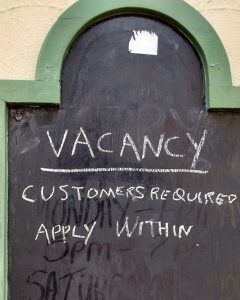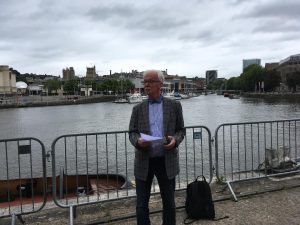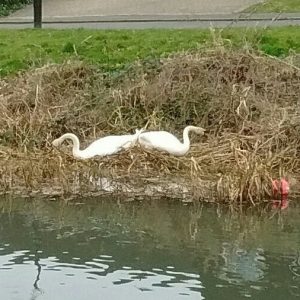This Week’s Bit of String: Three kids and a saw
Visiting my parents’ New Hampshire town several summers ago, my husband and I wandered down the pre-re-vitalised Main Street. In front of a once fine, colonial-style house now leaning and peeling, a little boy stood barefoot on the drive, twirling a rusted coping saw. Two small girls watched from the weedy front lawn, their expressions grave.
A scrawny mum in a nightdress shouted at them to get inside and watch TV. My husband and I exchanged looks. Were these the Small Town Values politicians always banged on about?

What bothers me about the Small Town Values spiel isn’t that it writes off the city as immoral; morality is irrelevant. (How dull would our writing be if everyone were moral?) It’s that it abets the impression that small towns are idyllic places where nothing bad ever happens. It minimises the challenges faced by those living there.
It’s the same on this side of the ocean. I worked in one of the biggest secondary schools in a large county, but our school was populous mainly because it drew on twenty-something ‘feeder’ primary schools, some from very small towns. Government inspectors seemed dismissive of our students’ issues because we were based in ‘the leafy suburbs.’
However, our area is also classed as one of ‘rural deprivation,’ with an exceptionally high incidence of substance abuse and mental disabilities. These places are still riddled with real people, living hard stories.
Finding the Ideas
In my writing, I like setting longer projects in small towns, or at least not very big cities. Yes, my life experience has been gained there, but also it’s easier to tie threads together. You get added layers when your characters already know each other, or at least pass each other by with some regularity.

For shorter projects, though, the city is magic. Every person is a puzzle, and the way they brush by creates a range of potential interaction. It’s easy to find surprising juxtapositions: A mobile lingerie fitting shop setting up next to some well-jacketed, buttoned-up Jehovah’s witnesses and their pamphlets. A vegan Indian food stall next to one selling leather goods. Everyone is a stranger and capable of surprise; a twist here can easily be summed up in a sentence or a symbol.
I’m currently reading Flaneuse, Lauren Elkin’s tribute to women who don’t just explore the city, but absorb it. I picked this book up inspired by a recent Women Writers Network Twitter chat (see other great recommendations here) about women writing the city. Our reasons for celebrating this are best summed up by Sarah Waters in The Paying Guests. “She loved these walks through London. She seemed, as she walked, to become porous, to soak in detail after detail; or else, like a battery, to become charged. Yes, that was it, she thought as she turned a corner: it wasn’t a liquid creeping, it was a tingle, something electric, something produced as if by the friction of her shoes against the streets. She was at her truest, it seemed to her, in these tingling moments–these moments when, paradoxically, she was at her most anonymous.”
It’s possible that the more our selves diminish, the more our surroundings gain stature, free to sow new ideas.
With their relentless array of sights and sounds, urban areas are perfect for very short, or “flash” fiction. A flash piece is a kernel of story, minute and representative of possibility. The best ones are so tightly packed, you can’t unfurl them without damage. All you can do is peer at the coiled layers from the outside, maybe roll it on your tongue to taste the bitter or the sweet, never daring to crunch.
Bristol Flash Walk
I recently had a piece featured in Bristol’s Flash Walk, an event with flash fiction stories read at different points between the Harbour and Bedminster. All provided fascinating, quick glances into city encounters—past, actual, or merely longed-for. We strained over traffic and alarms and rivers and inquisitive children to hear each story, and this added to the excitement.

My contribution hovered dangerously near the maximum word count of 400 and was called “The Prodigal,” about the famous slave trader/ Bristol benefactor Colston. The opening line launches right in: “When Edward Colston revisited the city of his birth some three hundred and eighty years later, he saw his name etched blood-red across the sky.”
After the reading, which met with great laughter and applause at the right places, my husband asked me, “So where did Colston appear from? The afterlife?”
“Oh, I don’t know. You don’t have to, with flash fiction.” I could be totally wrong about this. But to me, that’s what suits flash fiction to city writing. You don’t have to look too deeply because something else comes along. I don’t know if I could finish a long project based in a city; I’d become distracted, I’d sink beneath the weight of all the what-ifs.
Escape to the Country
I tend to leave a city with a handful of kernels as well as some possible story-seeds. If I transplant a person or scenario from a more populous area to a smaller town or to a rural spot, it has room to grow. I can also gain a little control over other affecting factors and narrow down plot ideas.

When I polled Twitter, more than half respondents (58%) said countryside wanders were better than city ones for gathering ideas. I love the countryside, but I often need an idea already germinating in my mind for these hikes to be fruitful in terms of story development.
I just can’t invent things without people to base them on. Though it’s lovely walking with no one else around, I find myself assigning human psychology to my surroundings anyway. The other day on a canal walk, I wondered if the young swan families at different points along the journey receive news of each other. Does Mrs. Stratford Park Swan know she’s the last one waiting for her eggs to hatch? Do Mr. and Mrs. Dudbridge Swan know the Eastington cygnets are only just learning to dive, and that the group has dwindled to 4? And do any of them know the whereabouts of the missing Ebley Swans? I imagined cunning mallards passing these tidbits on. Possibly trading gossip for a prime beakful of algae.
I don’t know if this shows a lack of imagination in me, or a surplus of projection. But this is how I tend to work: tugging bits of string out from the city and puttering with them in as close to the wilderness as I can find. Or, in my daily smaller-town life, suddenly realising that the customer or bus passenger I keep seeing is a massive multicoloured spool of thread just waiting for my mind to get tangled in.
There’s so much packed into this wonderful blog post! The thread about writing set in the city or in a small town or in the countryside engaged me partly because I’ve been wondering if writing set in what people think of as an idyllic place is seen as less important. I don’t think it is, and perhaps it’s up to us to show that it’s not only in the city that gritty things happen.
In The Chicken Soup Murder the main setting was my own small home town of Bridport with a trip to the city of Cardiff because I know that so well. Having said that, I don’t feel the city is ‘mine’ in the same way as the small town and rural life I grew up with. Later, for work and pleasure I used to pendle between the city and the countryside and love both, the contrasts and how people are with each other; I’ve enjoyed the anonymity of living abroad when I was young – though I kept seeing people I thought I knew, until I realised that they were miles and miles away back in the place I used to (and now again) call home. All of those things came up in me on reading your post!
Then there’s all your thoughts about learning from all these people you meet and the encounters you have. I feel very much the same: and that story about the swans was starting to sound like a great tale for children of all ages!
Thanks very much for a thought-provoking post that has also brought up plenty of memories.